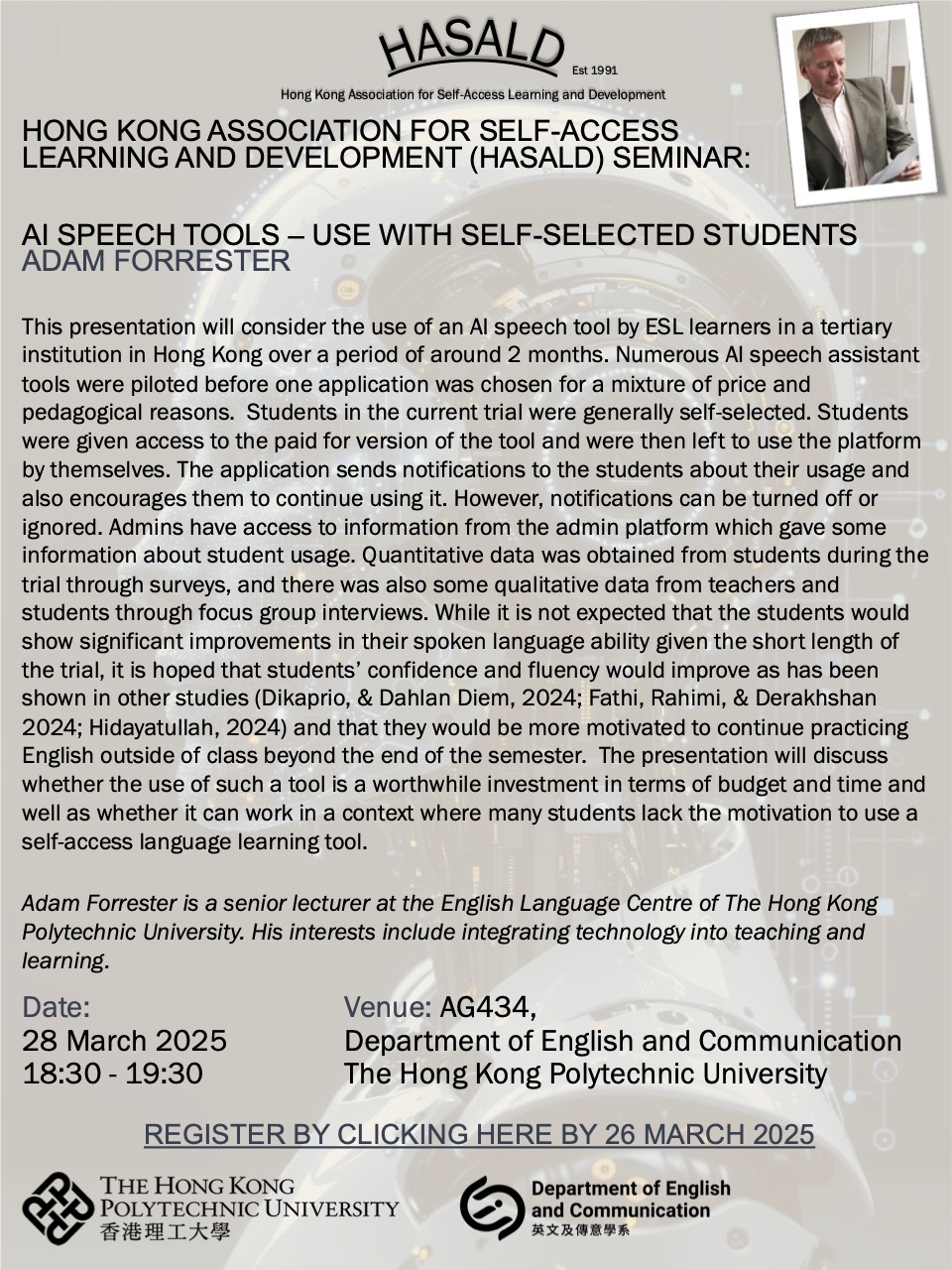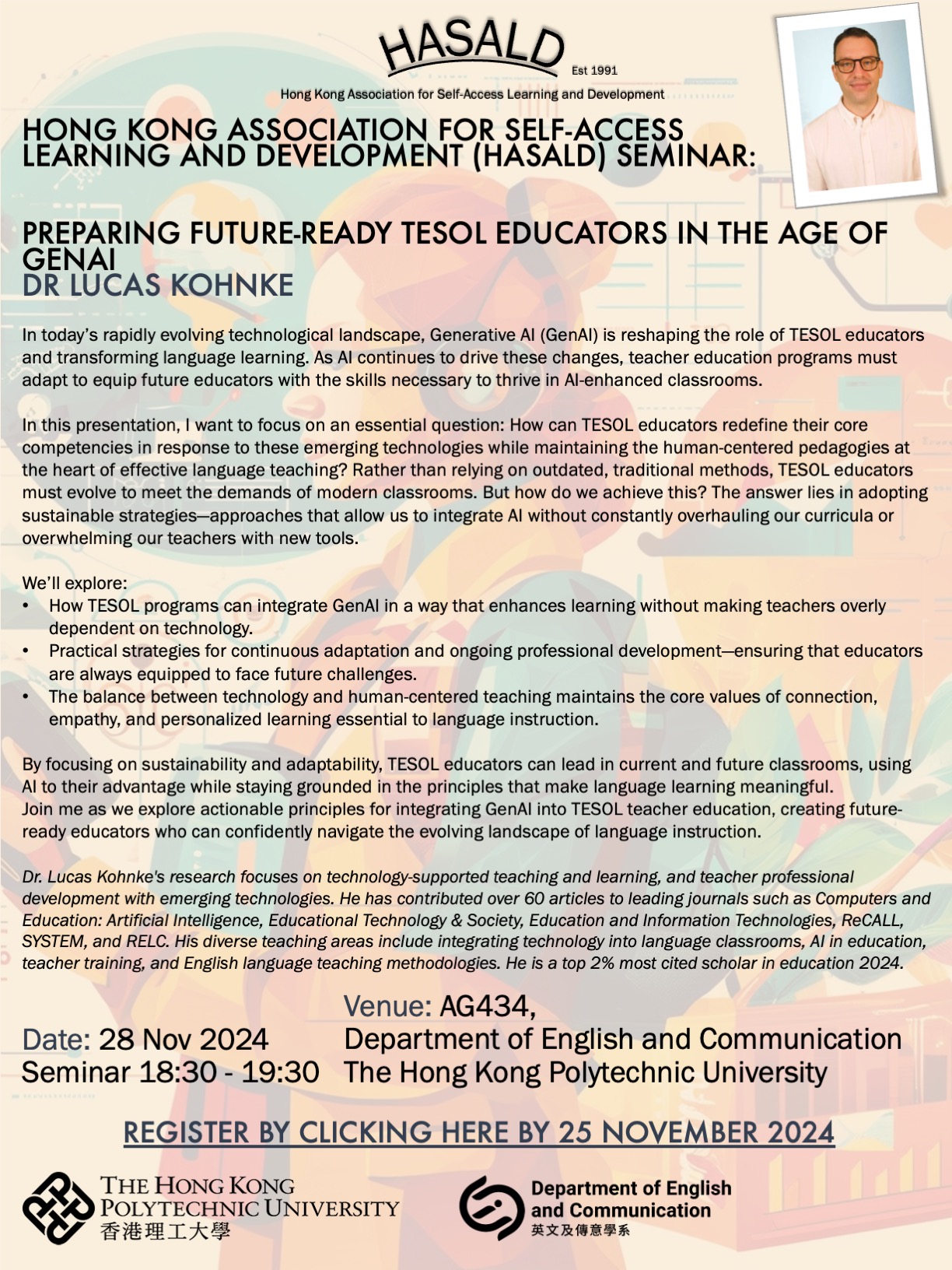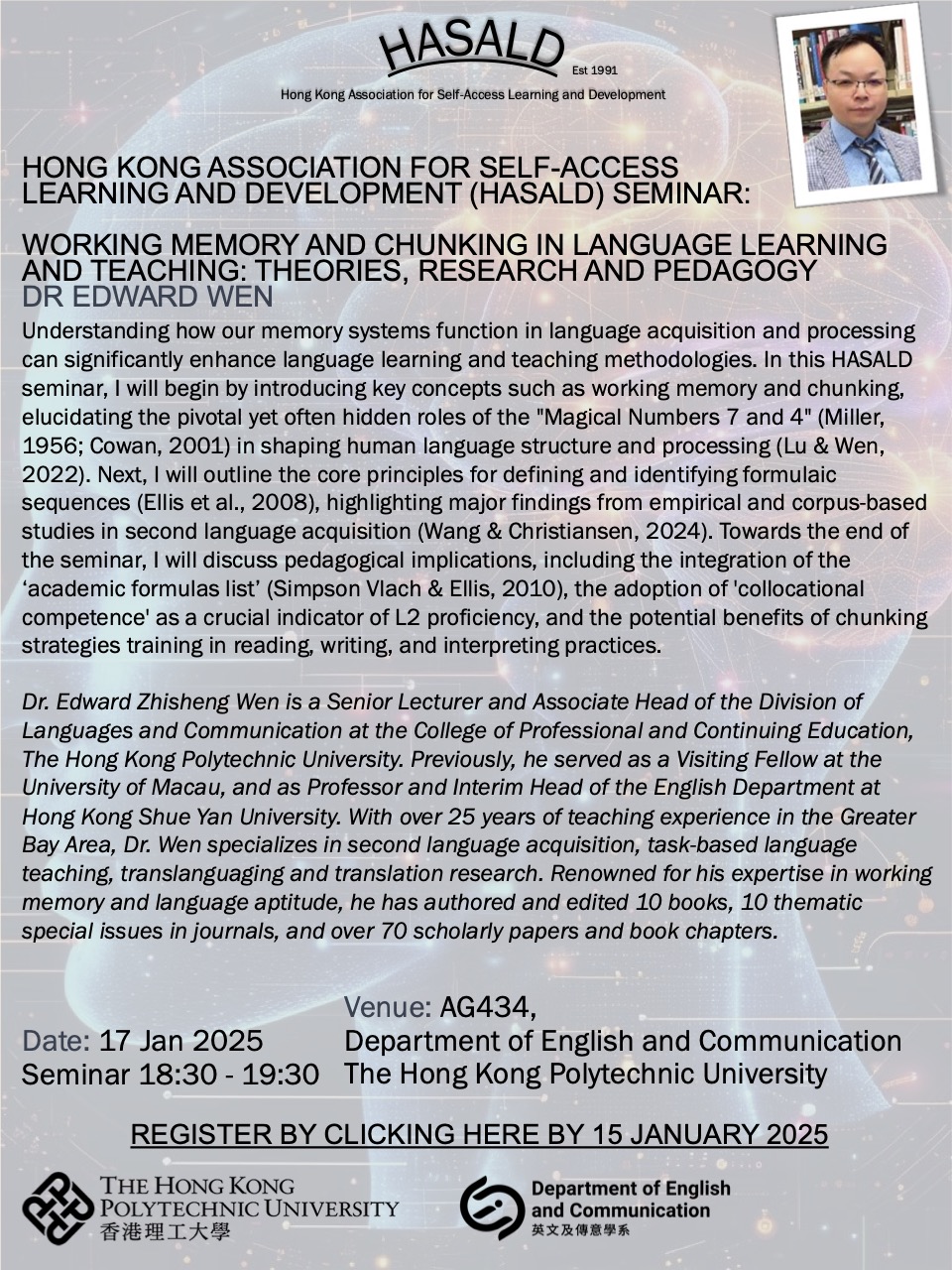Author: HASALD
-
Seminar: Kevin Yung
The Hong Kong Association for Self-Access Learning and Development (HASALD) would like to invite you to attend the following seminar: Technology-enabled shadow education: Implications for self-access learning and educational equityby Dr Kevin Yung Technology, including artificial intelligence (AI), has been widely used in education, including out-of-school contexts such as shadow education, i.e., supplementary tutoring that students use…
-
Seminar: Nick Wong
The Hong Kong Association for Self-Access Learning and Development (HASALD) would like to invite you to attend the following seminar: Multiparty Co-Learning and Critical AI Literacy: The developmental process of the automated speaking assessment for HKDSE English speaking paperby Dr Nick Wong Although AI-enabled edtech tools are proliferating in recent years for supporting various self-directed or blended…
-
Seminar: Eric Friginal
The Hong Kong Association for Self-Access Learning and Development (HASALD) would like to invite you to attend the following seminar: Positioning Applied Corpus Linguistics: Advancing Research and Practice for Real-World Impactby Prof. Eric Friginal Applied Corpus Linguistics (ACL) represents a dynamic and impactful domain of corpus linguistics that bridges the gap between linguistic research and practical applications. Its central mission…
-
HASALD Conference 2025: Schedule & Programme
Please see the latest version of the schedule and programme for HASALD Conference 2025. If you would like to attend HASALD Conference 2025 as a non-presenting attendee, please register by clicking here. Schedule and programme updated: 5 June 2025
-
Seminar: Wesley Curtis
Transition from Educator to Educator-Administrator in Tertiary Language Program Administration By Wesley CurtisCity University of Hong Kong In the context of tertiary language programs, the transition from Educator to Educator-Administrator is one for which the vocation of teaching may present partial or limited pathways for relevant professional development. As such, practitioners assuming first-time responsibility for…
-
Seminar: Regina Brautlacht
The Future of Language Learning in a Digital and Globalized World By Regina BrautlachtBonn-Rhein-Sieg University of Applied Sciences As education increasingly integrates digital technologies, language learning is evolving through innovative approaches that combine virtual exchange (VE), interdisciplinary collaboration, and international partnerships. This transformation fosters linguistic proficiency, intercultural competence, and global citizenship. Virtual exchange plays a…
-
HASALD Conference 2025 — Call Extended to 15 May!
HASALD Conference 2025: International Conference on the Future of Education: Past Lessons, Present Insights, and Future Trends Call for Papers The Hong Kong Association for Self-Access Learning and Development (HASALD) is proud to announce HASALD Conference 2025, to be held on 7 June 2025 at The Hong Kong Polytechnic University. The theme of this year’s HASALD Conference is the Future of Education: Past…
-

Seminar: Adam Forrester
AI Speech Tools – Use with Self-Selected Students By Adam Forrester The Hong Kong Polytechnic University This presentation will consider the use of an AI speech tool by ESL learners in a tertiary institution in Hong Kong over a period of around 2 months. Numerous AI speech assistant tools were piloted before one application was chosen…
-

Seminar: Dr Lucas Kohnke
Preparing Future-Ready TESOL Educators in the Age of GenAI By Dr Lucas KohnkeThe Education University of Hong Kong In today’s rapidly evolving technological landscape, Generative AI (GenAI) is reshaping the role of TESOL educators and transforming language learning. As AI continues to drive these changes, teacher education programs must adapt to equip future educators with…
-

Seminar: Dr Edward Wen
Working Memory and Chunking in language learning and teaching: Theories, Research and Pedagogy By Dr Edward WenCollege of Professional and Continuing Education, The Hong Kong Polytechnic University Understanding how our memory systems function in language acquisition and processing can significantly enhance language learning and teaching methodologies. In this HASALD seminar, I will begin by introducing…